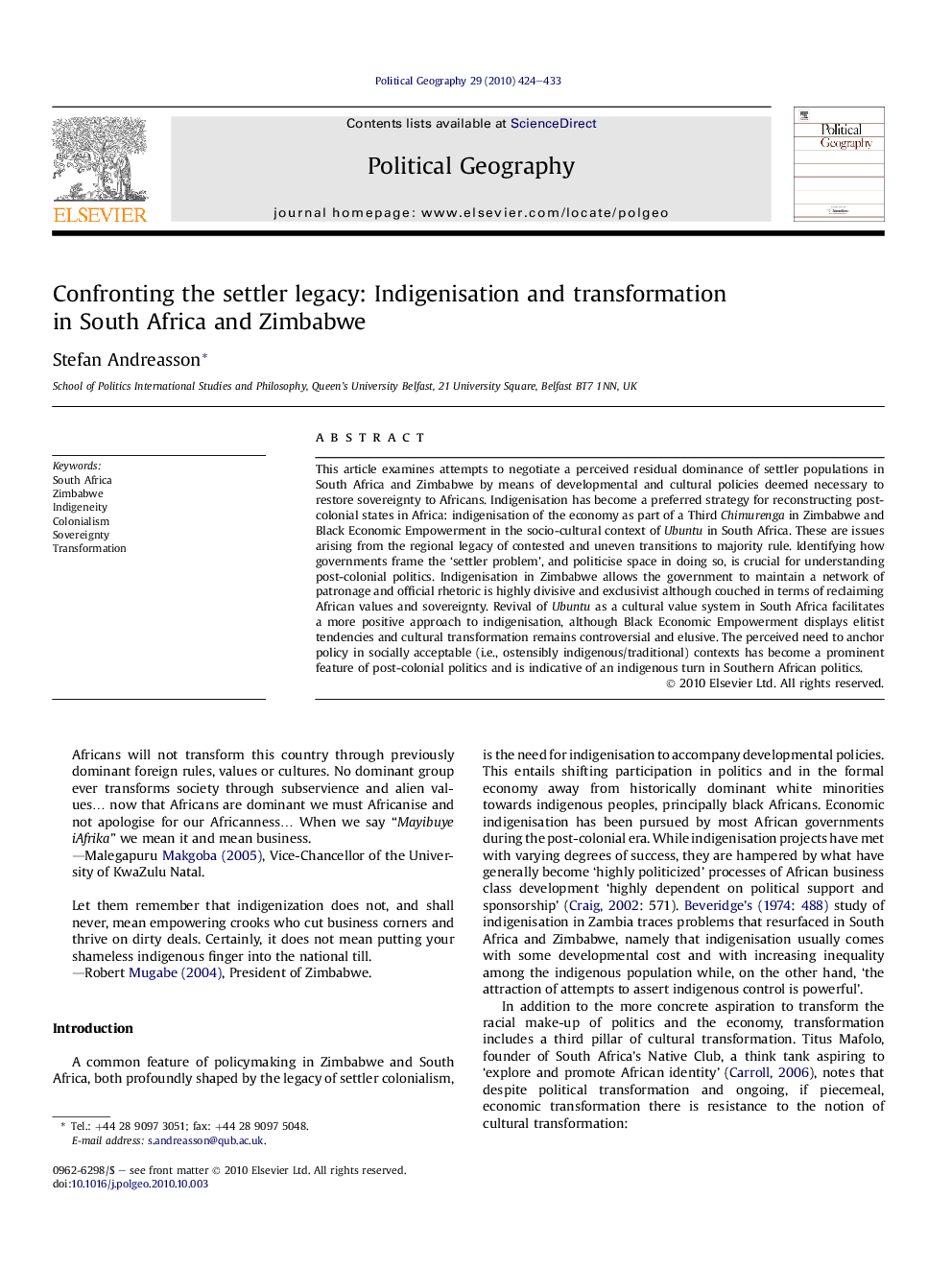| Article ID | Journal | Published Year | Pages | File Type |
|---|---|---|---|---|
| 1062132 | Political Geography | 2010 | 10 Pages |
This article examines attempts to negotiate a perceived residual dominance of settler populations in South Africa and Zimbabwe by means of developmental and cultural policies deemed necessary to restore sovereignty to Africans. Indigenisation has become a preferred strategy for reconstructing post-colonial states in Africa: indigenisation of the economy as part of a Third Chimurenga in Zimbabwe and Black Economic Empowerment in the socio-cultural context of Ubuntu in South Africa. These are issues arising from the regional legacy of contested and uneven transitions to majority rule. Identifying how governments frame the ‘settler problem’, and politicise space in doing so, is crucial for understanding post-colonial politics. Indigenisation in Zimbabwe allows the government to maintain a network of patronage and official rhetoric is highly divisive and exclusivist although couched in terms of reclaiming African values and sovereignty. Revival of Ubuntu as a cultural value system in South Africa facilitates a more positive approach to indigenisation, although Black Economic Empowerment displays elitist tendencies and cultural transformation remains controversial and elusive. The perceived need to anchor policy in socially acceptable (i.e., ostensibly indigenous/traditional) contexts has become a prominent feature of post-colonial politics and is indicative of an indigenous turn in Southern African politics.
Research highlights► Indigenisation has become a preferred strategy for reconstructing post-colonial states. ► Indigenisation is a manifestation of attempts to address contested political geography. ► Divisive and exclusivist Zimbabwean indigenisation prompts democratic breakdown. ► Inclusiveness of ubuntu tempers the divisiveness of BEE in South African indigenisation. ► Anchoring policy in indigenous contexts prompts an indigenous turn in Southern Africa.
